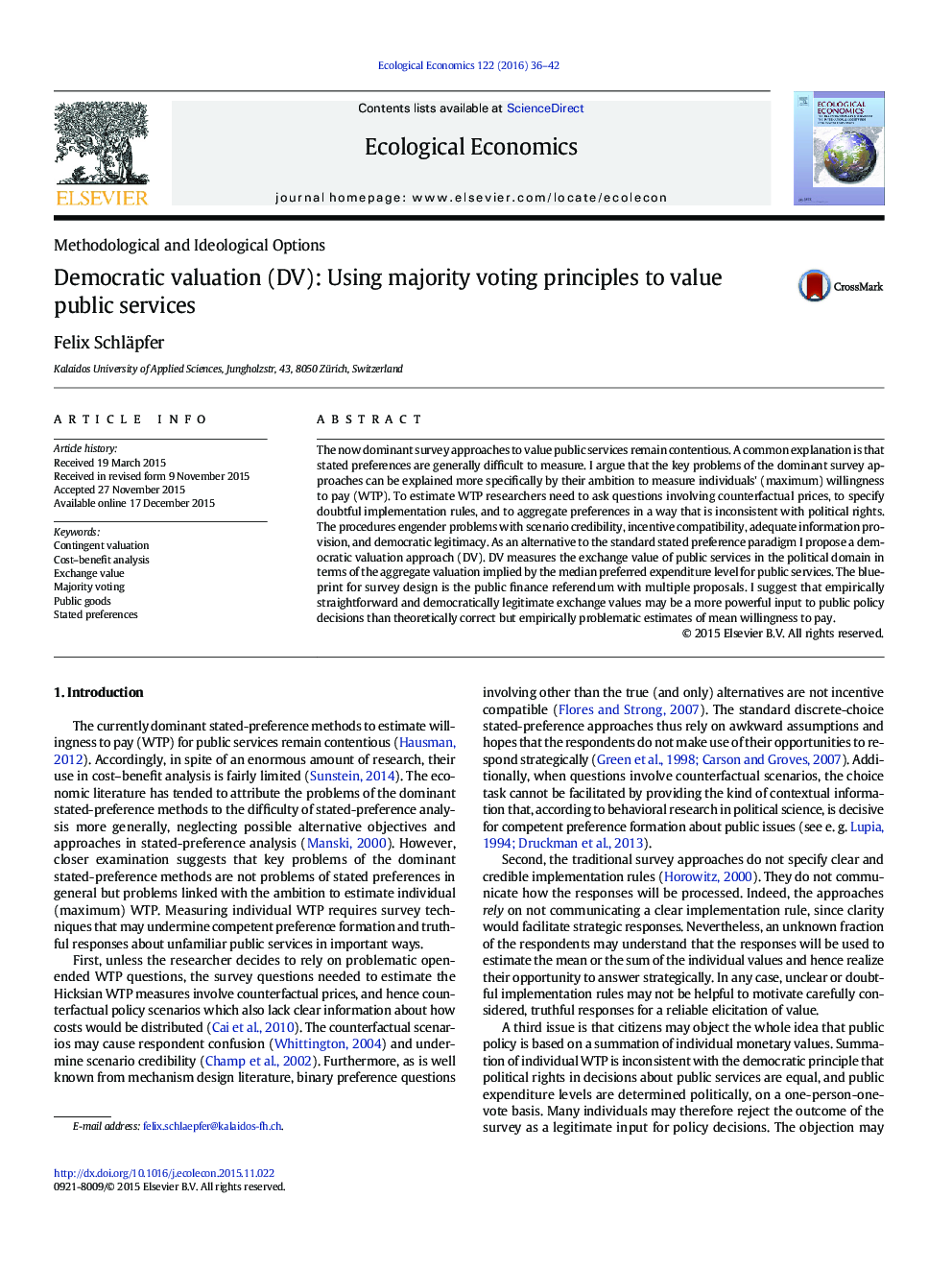| کد مقاله | کد نشریه | سال انتشار | مقاله انگلیسی | نسخه تمام متن |
|---|---|---|---|---|
| 5049136 | 1476357 | 2016 | 7 صفحه PDF | دانلود رایگان |

- The now dominant survey approaches to value public services remain contentious.
- To estimate standard WTP measures the researchers need to ask problematic questions.
- I propose to assess the exchange value of public services implied by the median quantity.
- The blueprint for survey design is a public referendum with multiple proposals.
- Valuation based on majority voting may be a powerful input to policy decisions.
The now dominant survey approaches to value public services remain contentious. A common explanation is that stated preferences are generally difficult to measure. I argue that the key problems of the dominant survey approaches can be explained more specifically by their ambition to measure individuals' (maximum) willingness to pay (WTP). To estimate WTP researchers need to ask questions involving counterfactual prices, to specify doubtful implementation rules, and to aggregate preferences in a way that is inconsistent with political rights. The procedures engender problems with scenario credibility, incentive compatibility, adequate information provision, and democratic legitimacy. As an alternative to the standard stated preference paradigm I propose a democratic valuation approach (DV). DV measures the exchange value of public services in the political domain in terms of the aggregate valuation implied by the median preferred expenditure level for public services. The blueprint for survey design is the public finance referendum with multiple proposals. I suggest that empirically straightforward and democratically legitimate exchange values may be a more powerful input to public policy decisions than theoretically correct but empirically problematic estimates of mean willingness to pay.
Journal: Ecological Economics - Volume 122, February 2016, Pages 36-42